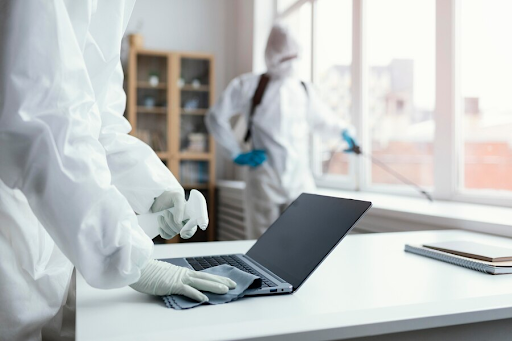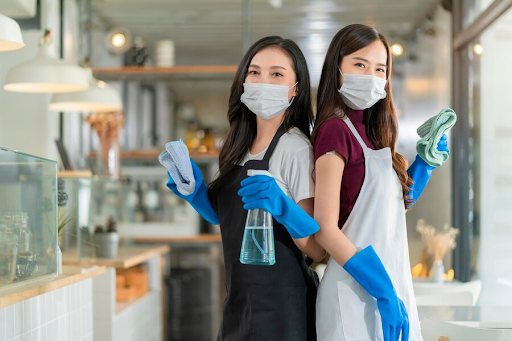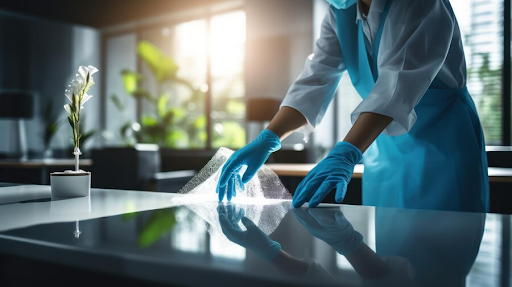Healthcare Cleaning Services: Specialist Cleaning Sydney
Healthcare cleaning services are essential to keeping medical environments clean, compliant, and presentable. In high-traffic settings like clinics, day surgeries, and specialist centres, cleanliness isn’t just a visual expectation—it supports daily operations, protects equipment, and helps facilities meet industry guidelines. In Sydney’s fast-paced medical landscape, professional cleaners play a vital role. Partnering with trusted medical cleaning services ensures compliance, hygiene, and smooth daily operations.
This article explains how specialist healthcare cleaning services work, what makes them different from general commercial cleaning, and how to select the right provider for your practice or facility.
Why Healthcare Cleaning Services Require a Specialised Approach
Unlike traditional office or retail spaces, medical environments require cleaning routines that support sterility goals, reduce surface buildup, and maintain high visual standards. These requirements demand more than just mopping floors or wiping counters—they involve precision, consistency, and a deep understanding of sensitive areas.
Facilities Must Meet Industry Cleaning Protocols
Medical environments often follow standardised internal hygiene procedures. Professional cleaning teams work in alignment with those protocols, ensuring waiting areas, consultation rooms, and restrooms are cleaned to specification—without disrupting care activities.
Attention to Detail in Sensitive Zones
Reception desks, staff break areas, bathrooms, and patient-facing rooms must remain visibly clean throughout the day. A professional cleaner will use the right tools and routines to address dust, waste, and surface grime efficiently and discreetly.
Tools and Techniques Used in Healthcare Cleaning Services
The tools used in medical facility cleaning are designed to remove visible dirt while being safe for delicate finishes and equipment. In some environments, commercial-grade microfibre systems, low-residue cleaning agents, and colour-coded tools help reduce contamination across zones.
Commercial Microfibre Systems for Surface Precision
Microfibre cloths and mops trap dust and residue effectively without scratching or damaging surfaces. They're ideal for use around sensitive equipment and fixtures, ensuring surfaces are spotless without introducing lint or streaks.
Colour-Coded Tools for Cross-Zone Clarity
Colour-coded mop heads, cloths, and gloves help cleaning staff avoid cross-use between patient areas and non-clinical zones. This practice enhances accountability and improves cleaning consistency, especially in larger practices or multi-room clinics.

Common Zones That Require Consistent Attention
In medical centres and clinics, certain areas naturally experience more traffic—and require more regular cleaning. While frequency is determined by usage patterns, most healthcare cleaning services in Sydney focus on the following spaces:
Waiting Rooms and Reception
First impressions matter. Clean glass, polished floors, and dust-free furniture help reassure visitors that your practice is well-managed and organised.
Consultation and Treatment Rooms
While clinical tools are handled by staff, cleaning teams ensure workstations, sinks, floors, and general surfaces are clear of residue, spills, and general grime.
Washrooms and Staff Amenities
These areas require regular wipe-downs and restocking. Cleaners focus on bin removal, surface cleaning, and replenishing soaps, paper towels, or bin liners as needed.
These core tasks are central to medical cleaning contracts and align with the structured, eco-conscious approach we apply at
Everyday Clean.

Benefits of Working With Professional Healthcare Cleaning Providers
Outsourcing your medical facility’s cleaning needs ensures you’re supported by trained personnel who understand your environment’s standards and expectations.
Reduce Administrative Burden for Staff
Your clinical staff shouldn’t be worrying about bins or floor marks. A consistent cleaning service allows your team to focus on care, confident that the facility is maintained.
Build Trust With Visitors and Partners
Visible cleanliness builds confidence—especially in healthcare settings. Whether it’s parents visiting a paediatrician or patients attending repeat appointments, a tidy environment helps foster peace of mind.
That’s why many clinics choose a trusted Sydney provider like Everyday Clean—known for our reliable service, advanced tools, and eco-friendly methods across commercial sectors.

How to Choose the Right Healthcare Cleaning Services in Sydney
Not all commercial cleaning services are suited to the healthcare sector. Here’s what to look for when selecting a reliable partner:
Industry Experience and Service Documentation
Choose a team with a proven track record in clinic or medical practice cleaning. Ask for documentation, checklists, and proof of systems to ensure accountability.
Flexible Scheduling to Minimise Disruption
Cleaning teams should be able to operate outside of appointment hours or during low-traffic times. This ensures patients aren’t inconvenienced and staff aren’t interrupted.
Clear Communication and Onboarding Process
From initial site inspections to ongoing check-ins, a professional cleaning provider should offer transparent communication. This helps you adjust scopes or routines as your practice grows.
FAQs About Healthcare Cleaning Services
What makes healthcare cleaning different from standard office cleaning?
Healthcare cleaning involves more detailed, zone-specific routines and tools designed to minimise cross-contamination between public and staff areas. It also requires more consistency in high-traffic environments.
How often should medical spaces be cleaned?
Waiting rooms and reception areas may require multiple daily touch-ups, while treatment rooms and staff spaces typically follow a daily or per-shift cleaning schedule. Your provider should help tailor this based on usage.
What cleaning supplies are used in medical facilities?
Medical settings often require low-residue, non-corrosive, and scent-neutral cleaning agents. These protect equipment, ensure comfort for visitors, and align with safety protocols.
Can cleaning staff operate during business hours?
Yes—many cleaning teams are trained to work around staff and patients discreetly. However, deeper cleaning tasks are typically scheduled outside patient hours for efficiency.
Conclusion
Healthcare cleaning services support the smooth operation of medical environments by keeping facilities tidy, compliant, and visually reassuring. From surface detailing to flexible scheduling and specialised tools, professional cleaning plays a key role in helping Sydney’s medical centres run efficiently and presentably—without overstating medical outcomes.
If you're seeking consistent, professional results, Everyday Clean delivers tailored medical cleaning services across Sydney—reliable, eco-friendly, and compliant.
Contact us today to learn how our tailored medical cleaning services can support your operations.
Author: Everyday Clean Content Team
Everyday Clean is Sydney’s trusted provider of professional office, strata, and commercial cleaning services. Our licensed and insured team helps workplaces maintain top hygiene standards with eco-friendly products and proven cleaning systems. With years of experience supporting Sydney businesses, Everyday Clean shares expert tips, real case studies, and practical advice to keep your workplace safe, compliant, and welcoming.


